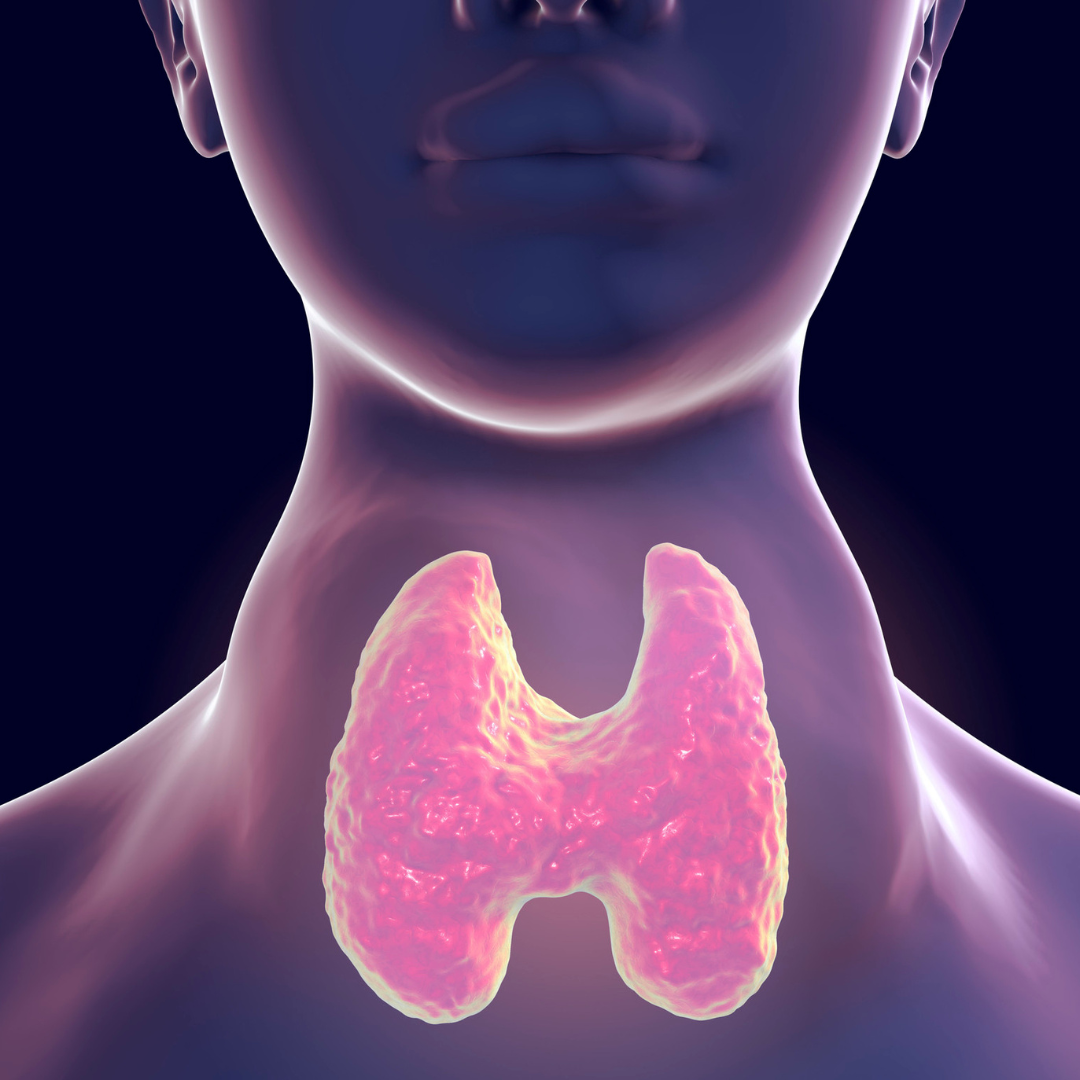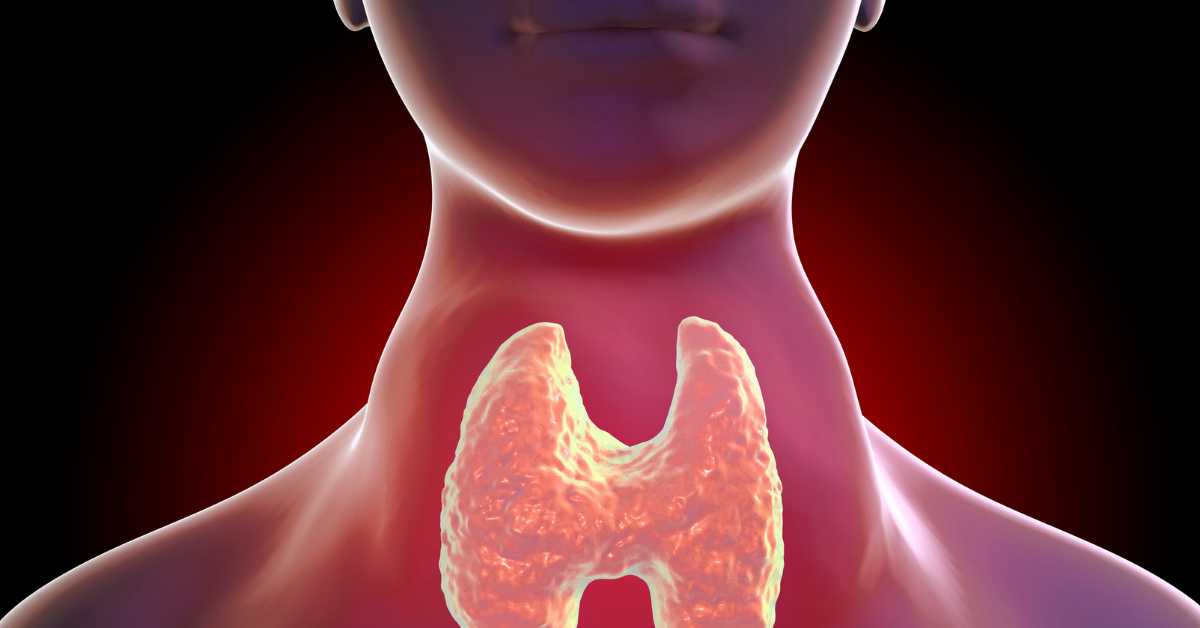Explore the nuances of thyroid health, from understanding different conditions to exploring risk factors and evidence-based treatments.
When is the last time you thought about your thyroid? Perhaps you heard someone mentioning having a sluggish thyroid or you know iodine has something to do with the thyroid, but not sure what.
Your thyroid, a small gland at the base of your neck, uses iodine (a mineral) to produce hormones and is involved in many of your body’s functions, including metabolic rate and regulating your heart beat.1,2 Iodine is essential for normal thyroid function and iodine deficiency is the main cause of thyroid dysfunction worldwide. (The United States fortifies its salt with iodine purposely to thwart deficiency.)3 Diseases of the thyroid stemming from under- or over-production of hormones can cause some unremarkable symptoms—like fatigue or weight gain—or more noticeable ones (like goiter), but become serious conditions like Hashimoto’s disease, Graves’ disease, or thyroid cancer, which is why it’s important to support your thyroid health.

In the U.S., the daily Recommended Dietary Allowance (RDA) for iodine in adults is 150 μg/day—which is easy enough to meet if you use table salt in your food—increases to 220-290 μg/day for pregnant and breastfeeding people, respectively. Women, especially older women, tend to have more issues with their thyroid than men.4
The following is a list of some of the foods and nutrients that may help promote a healthy thyroid, along with providing many other health benefits; however, if you have been diagnosed with a thyroid condition, be sure to consult with your doctor or a Registered Dietitian first as some of these items might exacerbate an existing condition.5,6
- Omega-3 fatty acids from fish, vegetable oils, walnuts, flax seeds, and leafy/cruciferous vegetables. Click here for some great recipes that focus on omega-3s.
- Selenium from nuts (Brazil nuts, specifically). Click here to learn more about selenium-rich foods.
- Iodine from basic table salt (“iodized” salt) or seaweed/sea vegetables and dairy foods. Click here to learn the difference between table salt (sodium chloride) and other types of salt.
To learn more about thyroid health, nutrient deficiencies/toxicities, and related diseases and conditions, please visit the American Thyroid Association’s website.
Not sure how to manage your thyroid diagnosis? Book a call with Dina to set up a plan of action!
References:
- Thyroid disease. Women’s Health.gov website.
- Thyroid disorders. Medicinenet.com
- Leung, A.M., Braverman, L.E., & Pearce, E.N. (2012), History of U.S. Iodine Fortification and Supplementation. Nutrients, 4(11): 1740-1746.
- Harvard Women’s Health Watch (2013). Could you have a thyroid problem-and not know it?
- Theobald, M. (n.d.). 7 Hypothyroidism-Friendly Foods to Add to Your Diet. Everyday Health website.
- James, D. (n.d.). What You Should Eat To Improve Thyroid Health. mbghealth website.



0 Comments